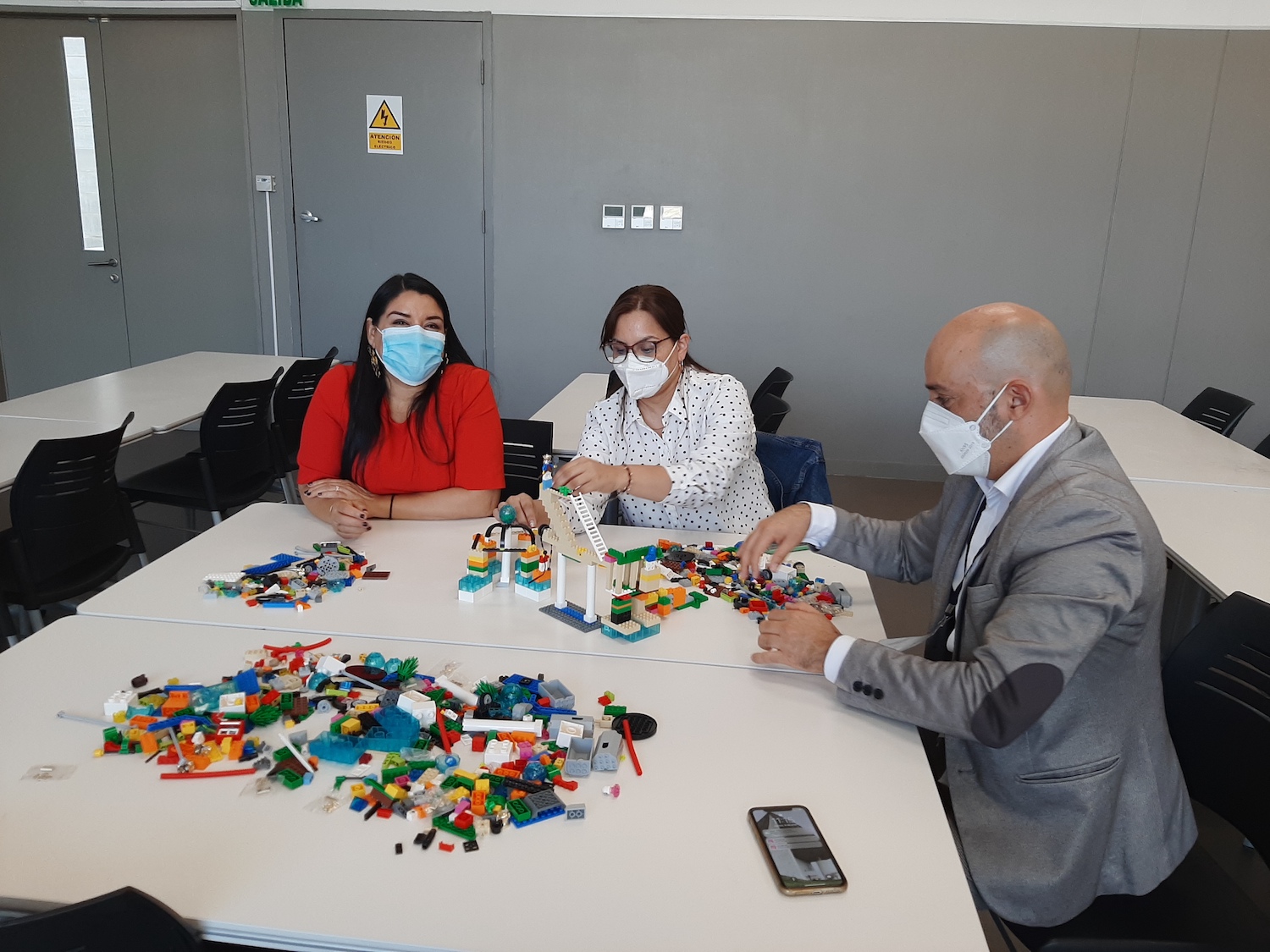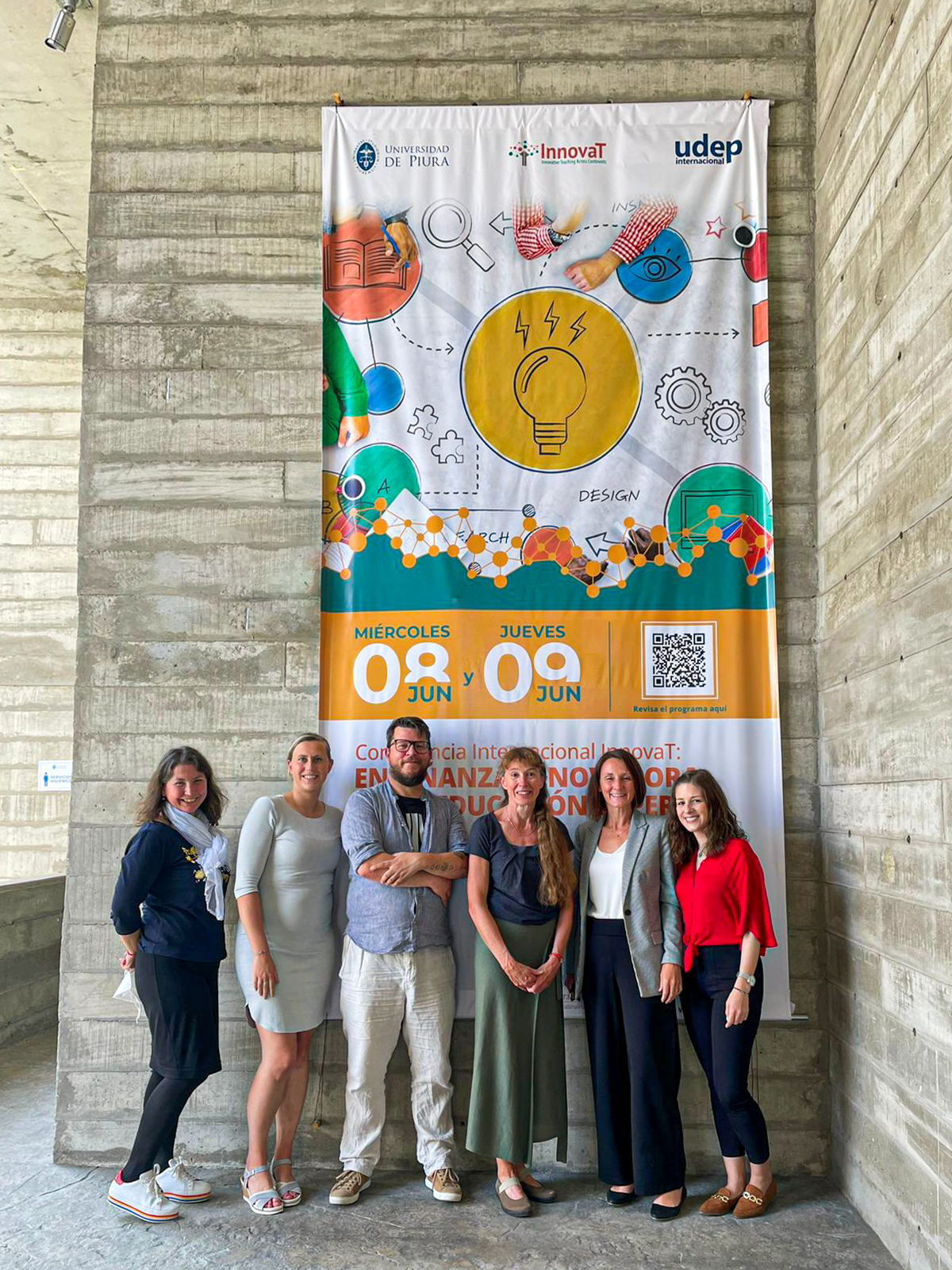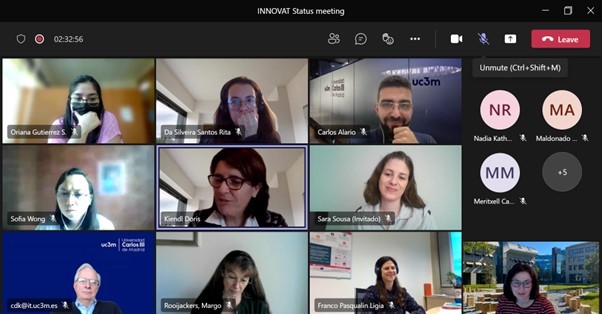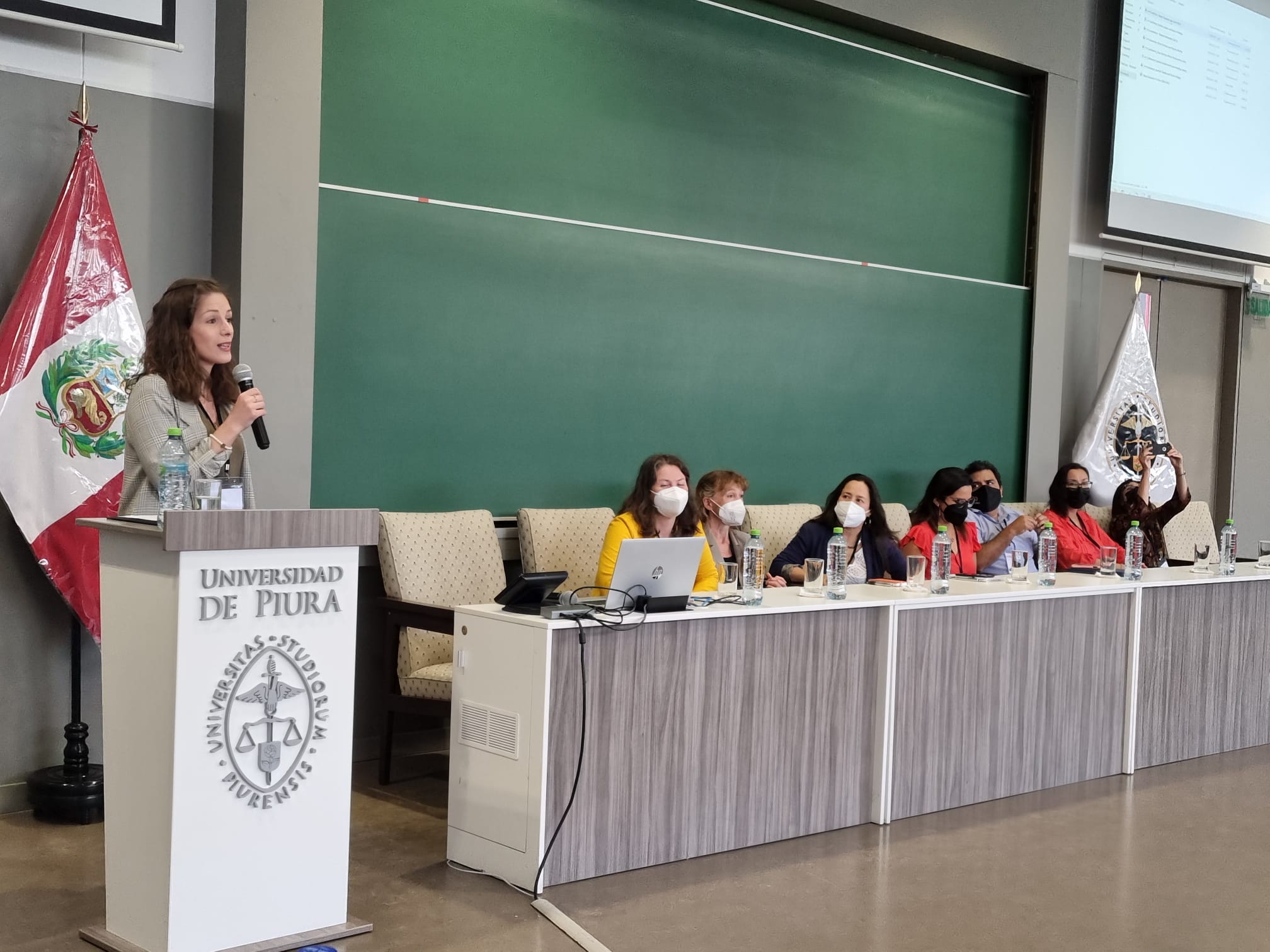The InnovaT Project
Higher education now & beyond

In this article we will look back on the InnovaT project and highlight some of the key insights and lessons learned during the process, accumulating into an outlook on how to design higher education that is well equipped for the future. The InnovaT project was an initiative aimed at enhancing innovation in teaching and learning approaches, fostering modernisation in Higher Education Institutes (HEIs) in Chile and Peru. This project was co-funded by the Erasmus+ Programme of the European Union.
Liliya Terzieva is professor of Designing Value Networks at The Hague University of Applied Sciences.
Margo Rooijackers is a senior lecturer and researcher at Breda University of Applied Sciences.
The project acknowledged the impact of technological advances on the conventional concept of teaching and learning, and the transformation of the roles of lecturers, students, and universities worldwide. Therefore, it emphasised the need for dynamic teaching methods and learning experiences that continuously incorporate innovative approaches and integrate new technologies.
The InnovaT project was created to provide lecturers and students with the relevant skills necessary to incorporate new approaches and technologies, complying with the quality demanded. The consortium of this project was composed of nine institutes with recognised experience in the educational field and innovation of processes. These include three European and six Latin American HEIs. The project was coordinated by the Institute of International Management of the FH Joanneum University of Applied Sciences. Breda University of Applied Sciences participated in the project as one of the European partner universities.
InnovaT output
The InnovaT project ran from 2019 to 2022 and consisted of eight work packages (WPs) varying from an in-depth needs assessment and knowledge transfer outset, capacity building of teaching staff, the development of a MOOC, the establishment of InnovaT offices in the six Latin-American HEIs, Pilot Innovative classes, to a package aimed at dissemination and sustainability. In addition to these activities, there were special WPs dedicated to quality assurance and monitoring and overall project management. To give an impression of some project impact indicators, the (online) training course was attended by 250 lecturers mainly from Chile and Peru; the specially developed MOOC attracted 2,355 participants worldwide; and the final conference in Piura was frequented by 173 international visitors. In addition to these statistics, less tangible but just as valuable key insights for the future of higher education were gained. See below for a summary of these as published in the InnovaT book titled Innovative Teaching in Higher Education, chapter VI "University Education and Training of Professionals for the Company of the 21st Century” (pp. 108-142).
Technology
It is more than clear, especially after being within the hurricane of a pandemic, that major steps have already been taken and still need to be addressed in terms of IT, blended, hybrid, and e-learning facilities. It is no longer just optional or an issue to be addressed in a strategy for the future but each and every higher educational institute has the objective and the responsibility to provide information to students by means of a personal portal, as digital access to information about education and the educational process - whether this is a specific Learning Management System and/or registration and administration software tools and applications for study results and examinations - becomes the ‘default’ expectation of all learners. Things are no longer communicated, promoted, visualised, and interacted with via only traditional channels; on the contrary, they have moved towards the learners’ ‘screens’ and ‘smart gadgets’ as well as towards social media applications such as Facebook, Instagram, Twitter, TikTok, Snapchat, Yammer, LinkedIn and many more.
Without a doubt the core can be continuously traced within the ambition to have impact.
Students require 24/7 access to a personal online portal (also accessible via an app) where all the diverse systems can be accessed (Single Sign On - SSO). Facilities are being created for lecturers at various workstations such as live streaming, collaborative software such as Teams, Mural, Miro, Zoom, etc. for maintaining national and international contacts and study coaching as well as COIL (Collaborative Online International Learning) environments and webinar/self-recording booths.
Transversal competencies
Higher and professional education are not there just to shape professionals into experts with specific expertise, it is obvious now that the transversal competencies like problem-solving, critical and creative thinking, teamwork, communication, data savviness, entrepreneurship, and leadership gain more relevance, which will serve these professionals for life. These skills - together with an attitude of openness, curiosity, civic duty, optimism, initiative, an inquisitive mindset, and drive - are already recognised by alumni and industry partners.
Internationalisation
In addition, the diversity and international environment, together with a transdisciplinary approach and connection with academic research, professorships and many industries are there to enable the students to understand, analyse, and intervene in the complexities of organisations. In that sense, educational institutes have already achieved first steps or have strengthened their role in managing to grow and enlarge their international networks, stakeholders, and counterparties. Each university would need an internationalisation plan referring to the opportunity that students benefit from the international experience in their daily study environment. This can be gained through mobility and work experiences lecturers already have, international colleagues, and the international experiences that students have been gaining (either through mobility or international students living, studying and working within a new context).

Link to industry
The universities and professional training institutes also need to be the providers of education that has real and direct impact on the industries and wider society they serve. Its focus is neither ‘just’ on developing knowledge (through academic research) nor ‘just’ on applying knowledge (as traditional applied sciences) but primarily on its use in real life to solve real problems and shape the industries in which they occur. Practical use is the difference between innovation and invention. This education must be guided by societal challenges and aligned with national and international research agendas. Thus, a specific difference can be made where it matters and that means constantly evaluating and adopting the research and development activities through external, outside-in reviews.
Designing the educational programmes needs to be seen as a learning expedition, where highly motivated and study-driven students collaborate and interact with professional and experienced lecturers and industry practitioners. Only in this way do the educational institutions become capable to continuously empower the development of the students’ multidisciplinary and cross-sectoral skills and competencies.
Lecturer’s role
Being in this dynamically evolving 21st century context, the lecturer has moved away from the one who has ‘all the knowledge’, who ‘knows the answers to all questions’, who is hierarchically ‘untouchable’, who is ‘there to provide knowledge in one direction’. Nowadays, lecturers operate beyond these descriptions, with an added 'twist', covering roles like facilitator, mentor, collaborator, designer, empowerer, trainer, coach, supervisor, and many more.
It will not be too much to say that the continuously changing roles and the ones continuously added to the profile of a lecturer, transform the university as well as the professional training institute into a HUB – a blended (both physical and online) space of interaction among students, lecturers, industry partners and public authorities – where knowledge is sustained, practices are tested, and experiments are embraced.

Collaboration
Educational programmes in the 21st century call for a new structure – one that educates professional who can deal with the fast-changing society. People will be trained to become capable of translating those changes into new forms of organisation, in devising innovative approaches to problems and opportunities, and in carrying out plans in dynamic ways. To encompass this, the curricula need to look into ‘learning community’ and/or ‘community of practice’ methodologies. Methodologies which refer to learning environments where students engage in a common task and each individual depends on and is accountable to each other by sharing their experiences. This collaborative approach aims to create a learning community that invites the students to get involved with the topic in different ways and to assume different roles throughout their learning together with lecturers, industry representatives, alumni, and researchers.
The community methodology described above is seen to be adapted and adopted more and more in the context of university and professional teaching and learning. It allows involvement and engagement of diverse stakeholders and the formation of a collaborative networking ecosystem, which we have also emphasised above.
Personalisation and flexibilisation of education
Personalisation and flexibilisation are not just about making courses accessible to students across an educational institute compatible in size and planning, so they can be combined. They are at the heart of everything an educational institute needs to create, namely a knowledge-rich, active, and sharing community that supports students throughout their learning journey. Students need to be provided ways to both actively learn from and contribute to the cross-disciplinary learning communities, courses, projects, and minors they participate in – enriching the learning experience for all: students from different study programmes, lecturers, researchers, alumni, and industry professionals.

Higher education now and beyond
The purpose of any higher educational and/or professional training institute has always been, but now even more than before, to educate students and prepare them for their role in society and their chosen professions and for engaging in research and development in their professional domains. Ultimately, their success is the measure of institutional success. Therefore, it is incumbent upon the educational world to define what students’ success means. The ease with which they find employment is certainly one indicator. So is the degree to which they are sought after by the industries the educational institutes serve (and want to serve). Another indicator is impact: having a marked positive effect or influence on the development of an industry or society. However, what is more?
Future professionals will have to be capable of operating in a world that is fast and constantly changing.
Without any doubt, the core can be continuously traced within the ambition to have impact – to shape a better, more meaningful, sustainable, open, connected, and appreciative world. This is representative of the generation coming to these institutes for a study programme today and tomorrow. It reflects a sense of civic duty, responsibility, optimism, initiative, and the desire to do more than just a job.
All the above can happen when the mission of educational institutes will become more and more oriented towards a model of combining multidisciplinary and cross-disciplinary learning and research; where in learning and communities of practice students, industry partners and stakeholders, educators and researchers go hand in hand and work on practical challenges for industry and society – thus blending education, academic and applied research, and generating continuous impact.
The professionals that would need to be delivered to the different industries will have to be capable of operating in a world that is fast and constantly changing. As our global population is growing, living longer, becoming more prosperous and increasingly urbanised, we must find new ways to remain healthy, consume less energy and fewer resources, protect the environment, and deal with the threat of pandemics and increasing geopolitical instability. Technology promises solutions to many challenges and it poses new practical, ethical, and legal challenges of its own. Robotisation, digitalisation and artificial intelligence will transform entire industries, the nature of work itself and the individual’s relation to society.
Unsurprisingly, both industries and society in general expect higher education and professional training institutes to deliver professionals who can help and lead them through these transitions.
More information
- Video impression of the InnovaT conference: https://vimeo.com/728076977/75dff76466
- About InnovaT: www.fh-joanneum.at/en/projekt/innovat
Sources
- Terzieva, L., Rooijackers, M., Gutierrez, O. & Dam, van A., (2022). University education and training of professionals for the company of the 21st century. In Becerra, J.P. & Quiroz, J.S. (Eds.), Innovative Teaching in Higher Education (pp. 108-142). ISBN: 978-956-410-997-8. Santiago.




































































